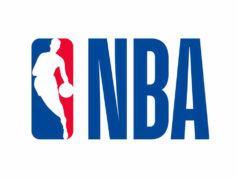“Don’t cheat to cheat” is essentially how Major League Baseball wants all and sundry to view its prohibition on the use of any and all forms of technology to decode signs. Having already thrown the book at the Astros for providing batters with otherwise-privileged information through extra-legal means, the Commissioner’s Office is slated to do the same to the Red Sox once its probe ends. To be sure, its intent is clear; it wants to free the sport of suspicions on its integrity and commitment to fair play. Using circumstantial advantages — such as when a runner is in second base and able to see the opposing catcher’s gestures — is one thing. Tapping other parties with access to electronic equipment in order to get ahead is quite another.
The fact that similarities abound in the extra-legal means employed by the aforementioned franchises (if not in methodology, then in motivation and purpose) speaks volumes of the pressure they face to deliver the goods. The predilection for protagonists to walk the fine line — and, needless to say, cross it — is borne of intense competition and the compelling need to emerge at the top when the battlesmoke clears. The zero-sum, winner-take-all components to the entire process further raise the stakes. The Astros and the Red Sox gambled in 2017 and 2018, respectively, that their elaborate schemes would net them immense benefits, and they were both rewarded with World Series triumphs. They would have gotten away scot-free, too, had pitcher Mike Fiers not broken an unwritten code and detailed the extent of the cheating to The Athletic.
Parenthetically, the varied reactions to the revelation underscore the pervasiveness of the “What goes on in Vegas stays in Vegas” mentality in locker rooms. Players purposely participated in the plan, and officials who had opportunities to stop them in the name of sportsmanship, if not the law, instead helped in or turned a blind eye to the conspiracy. Meanwhile, Fiers isn’t heralded for having the courage to blow the whistle on a fundamental wrong; rather, he’s pilloried for breaking his silence on the matter. And, in this context, no reputation is left unscathed in the aftermath of one of the biggest scandals in the sport’s history.
The league will survive, to be sure. Baseball is just too storied and too beloved not to weather the latest storm. That said, it needs to learn from its mistakes, and fast. Cracking down on transgressors and ensuring everybody else gets the message that it will brook no missteps are but the first in a series of moves it has to make to save stakeholders from self-injurious behavior. This time, it spared players from its wrath because it had to grant them immunity to get the whole story. It cannot encourage recidivism, however, and should thus be harsh and utterly devoid of forgiveness were such a thing to happen anew. Else, the Astros and the Red Sox won’t be the only examples of its misplaced trust, and those weighing the risks of getting caught may well figure the returns from resorting to dishonesty to be well worth the cost.
Anthony L. Cuaycong has been writing Courtside since BusinessWorld introduced a Sports section in 1994. He is a consultant on strategic planning, oprerations and Human Resources management, corporate communications, and business development.



